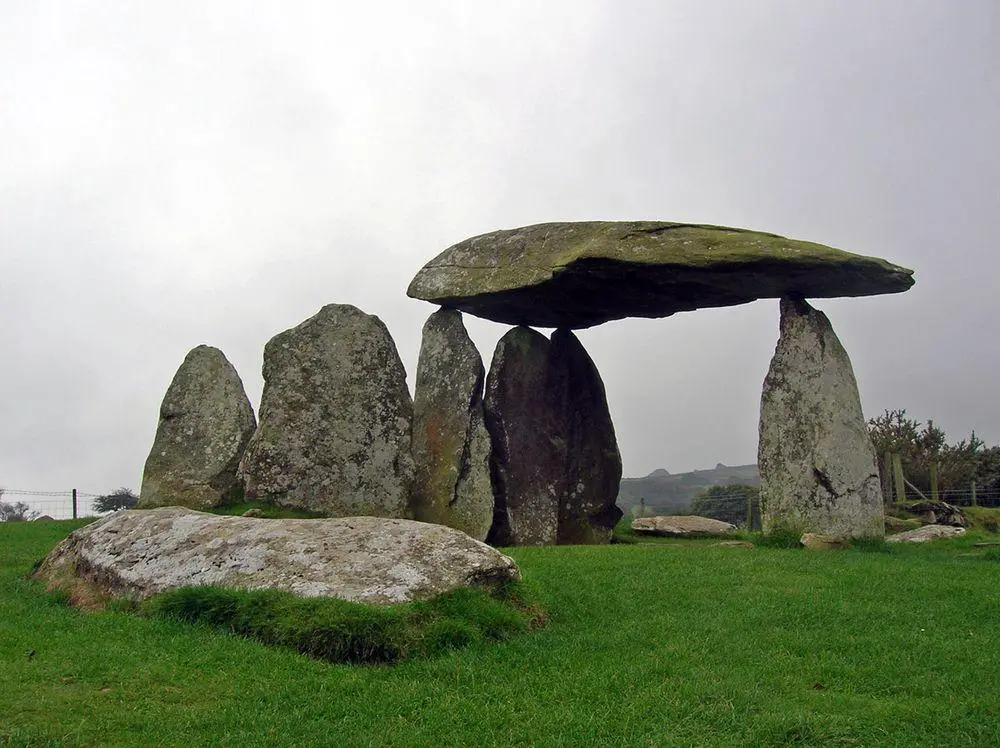World 🢖 Europe 🢖 United Kingdom 🢖 Wales 🢖 Pembrokeshire
Megaliths 🢔 Archaeological wonders 🢔 Categories of wonders
Wonder
Pentre Ifan
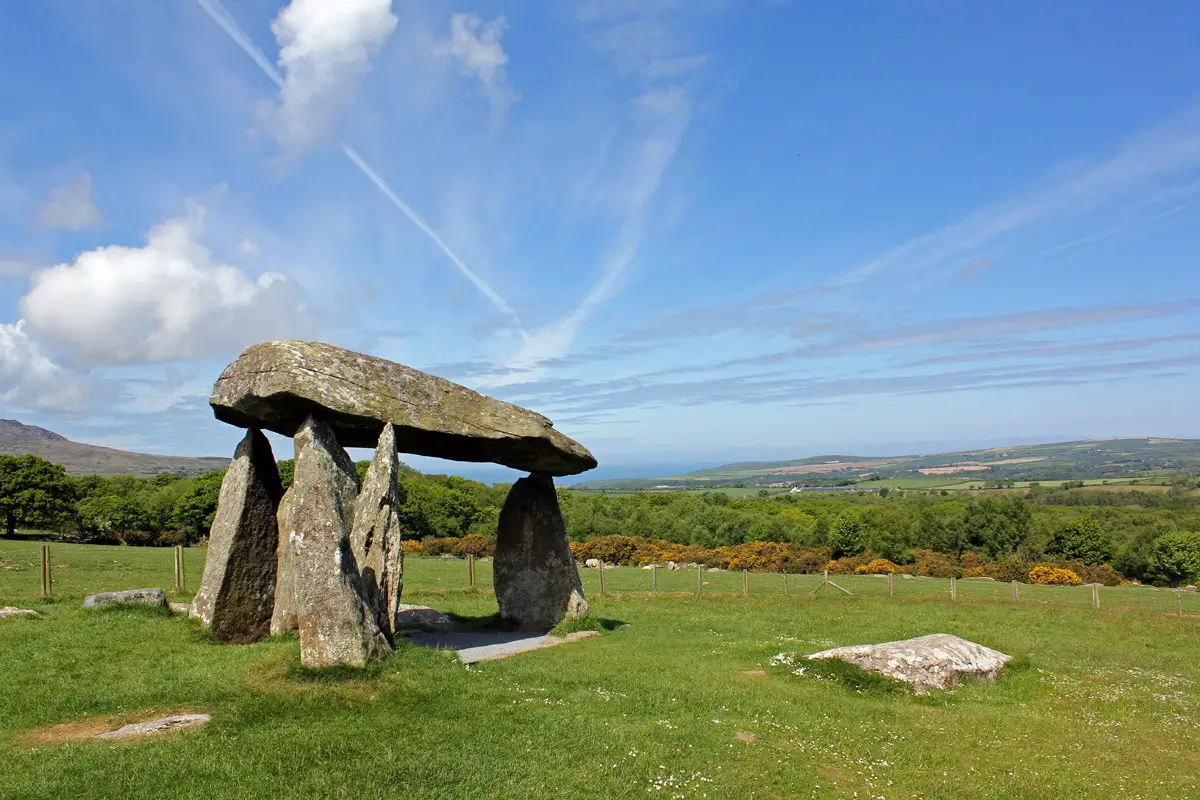
 In short
In short
One of the most romantic and beautiful places in Wales is Pentre Ifan. This is one of the best preserved Neolithic dolmens in Wales.
 44.3%
44.3%
GPS coordinates
Location, address
Age
Map of the site
If you see this after your page is loaded completely, leafletJS files are missing.
 In detail
In detail
It is not entirely clear how originated the name "Pentre Ifan" – it could mean "A village of Ivan", but some explain it as "5 Stones Heaven" – Pentray Eevan.
It is also not entirely clear – why Neolithic people built this structure. Excavations in 1936 – 1937 and 1958 – 1959 (both organized by William Francis Grimes) did not find any burials here – just some sherds of Neolithic pottery and flint tools were found, as well as a pit with signs of burning and smaller postholes. Pentre Ifan was built sometimes around 3500 BC.
Nevertheless it is considered that this structure was used for communal burial and – possibly, also as a ritual center.
Seven large stones still remain in their original positions. The most striking feature of Pentre Ifan is the enormous, 5.1 m long capstone (some 16 tonnes heavy), standing on the sharp tips of three upright stones. Capstone has been raised 2.4 m above the ground.
One upright stone still is blocking the entrance into the cist – there are a cup mark and a ring hewn in it. Several more stones are scattered around.
This is all that remains of a much larger structure. It is considered that originally Pentre Ifan was 36.6 m long and 17 m wide mound with a dry stone wall at the crescent that formed the entrance into the cist. Presently exposed stones were covered with a mound.
The chamber between these stones is 3 m long, 2 m wide, and 3 m high (the ground inside was made lower).
To the east is located fallen 2.74 m long stone.
Pentre Ifan is located on a hilltop, with beautiful views of the surrounding rural landscape.
This is a beloved site – it is welcoming, and a visitor loves to sit down below the capstone and contemplate the surrounding landscape. In Victorian times ladies and gentleman even enjoyed their picnics seated on the top of the dolmen.
There are also local legends about fairies (Tlwyth Teg) seen around the dolmen. The eyewitness has described these mythical beings in the early 20th century as "little children in clothes like soldiers, with red caps".
References
- Pentre Ifan, Rock Art in Wales. Accessed in the 3rd April 2011
 Linked articles
Linked articles
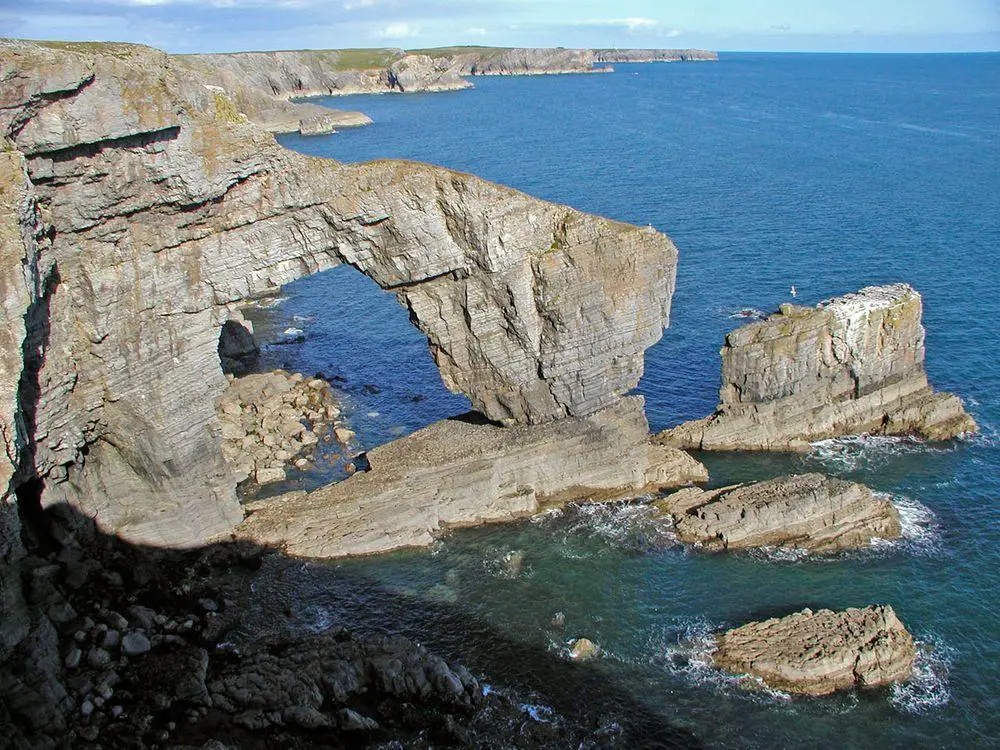
Wonders of Pembrokeshire
Highlights of Pembrokeshire are:
- Castles – diverse, impressive, and sometimes gruesome. One of the best is Pembrokeshire Castle.
- Megalithic monuments – Pembrokeshire is very rich in Neolithic and Bronze Age monuments. The best known is Pentre Ifan.
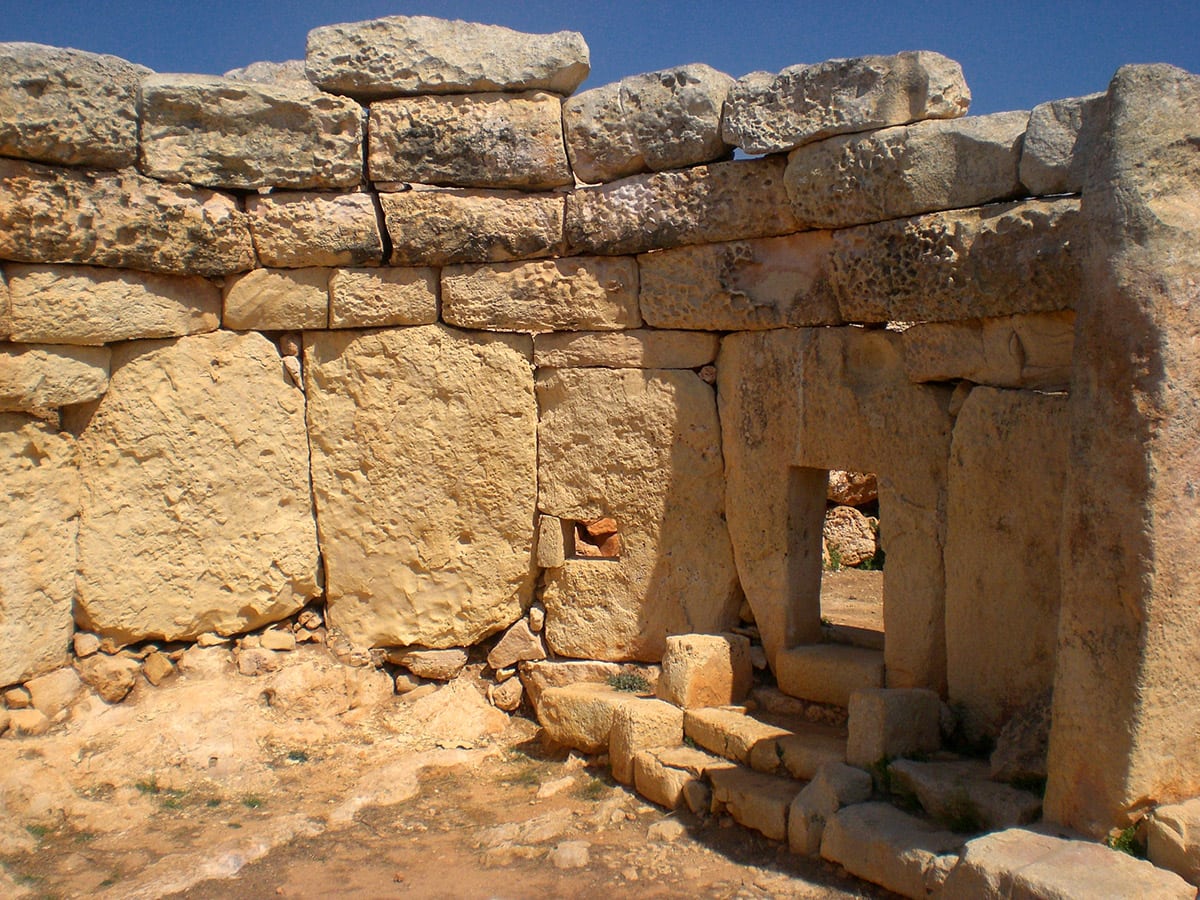
Megaliths
One of the most fascinating groups of archaeological monuments are prehistoric structures made of stones – megaliths. Through the ages, people have loved to strain their minds to find a sensible explanation for the many riddles posed by megaliths.
Even today, we can admit with some pleasure, there are thousands of mysteries left for us.
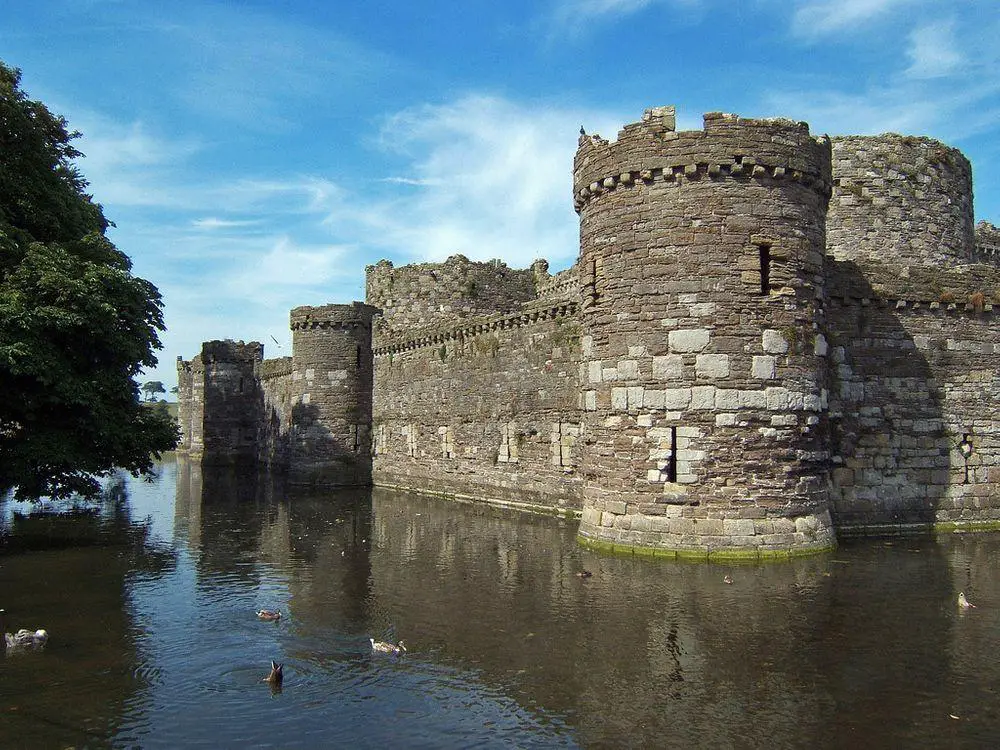
Wonders of Wales
In Wales are located some of the most beautiful caves and waterfalls in the United Kingdom but even more are some of the world’s most impressive castles as well as medieval towns, palaces, and interesting archaeological monuments.
 Recommended books
Recommended books
Pembrokeshire Coast Path
A practical guidebook to walking the Pembrokeshire Coast Path. The walk follows a National Trail around the coastline in southwest Wales. Includes maps, accommodation, pubs and restaurants, and what to see along the coastal path. 102 maps: 96 large-scale walking maps, 6 town plans, 10 stages with trail profiles, and 2 overview maps.
Powerful Places in Wales
Powerful Places in Wales is not your usual guidebook. It is not about visiting places, it’s about experiencing them. Wales doesn’t reveal itself easily, and not to the casual visitor. But when it does open itself to you, you will be amazed at its wonders.

